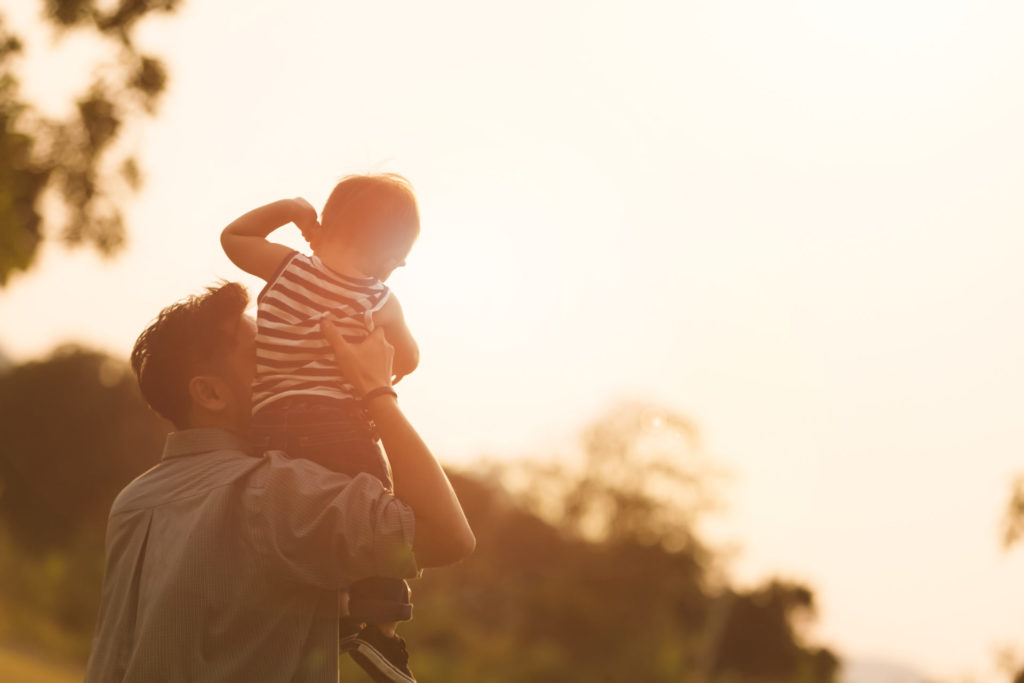Weeks before becoming a father for the first time, I wrote a letter to my unborn child. In quiet contemplation, I wrote of the magic of knowing that he existed and would soon enter the world. Every moment since his arrival has been cherished and savoured. These moments are fleeting.
Two years after Theodore’s arrival on stage, his brother added more sunshine to our lives. Aurélien was born in Adelaide one hour before the COVID lock-down in March, traversed the Nullarbor in the family car six weeks later, and smiled through a pandemic. He has his mother’s soul and the world is the better for it.
Parenthood is difficult to describe and impossible to convey to anyone yet to experience it. No amount of advice will fully prepare you for the experience. No-one tells you how tired you will be, or how relentless life becomes. My wife and I were both professional athletes. My wife, Sally, is a dual Olympic swimmer. We are used to discipline, sacrifice, focus but we quickly discovered the demands of parenthood are formidable.
Fatherhood is now the prism through which I happily view the world. Other things are shuffled down the order of priority but responsibilities – to our marriage, to my health and wellbeing – cannot be ignored. When they are ignored, it is to the detriment of our children but the balance is fine and hard to achieve.
A critical part of being a good father is being a good husband. Showing our boys generosity, kindness, support, and love. When you’re tired, as parents of small children almost inevitably are, with depleted energy between work and caring it can be difficult to find more to give. But there’s no alternative.
My wife Sally is strong and independent. Since adolescence, each day represented another step towards her dreams. Sal’s love of, and identification with, swimming did not die when she retired as an athlete. She set up her own business mentoring young athletes which is not an easy endeavour, that she combines with our family responsibilities.
A podcast by Harvard University’s Centre for the Developing Child which promoted the idea that self-care for parents is not selfish was somewhat of an epiphany. But how to find time for simple pleasures like reading, the cinema or writing, between work and care? How??
This beautiful period of life is complex and demanding even with incredibly privileged circumstances. Support from four extended families, our local community, parenting groups and our friendship group, has been so important. And we realise how fortunate we are to have that support.
Since becoming parents we have made decisions we may not have considered likely before our children were born. Our oldest son attending early childhood education and care, for example, not out of sheer necessity around work but because we saw how critical it was for his development was not something I anticipated.
The days Theodore spends at his early learning centre are a luxury. Initially, it felt that way because it facilitated Sally’s return to her work as a coach but, very quickly, we realised how important it was to his wellbeing and development. A curious, thoughtful boy, thrives with the variety of activities and contact with other children his own age.
We have loved meeting the educators, who are the bridge between so much research on early childhood development and us as parents. So many of the wonderful educators who have worked with Theodore have been enthusiastic and professional, but it is clear the sector is not structurally secure.
The high turnover of staff is disruptive. In a relatively short space of time Theodore has had to start new relationships and build trust again as educators move on, no doubt for a range of valid reasons. It is natural to seek more secure work and better conditions. The value the market affords early educators in Australia does not reflect the value of their work to society.
Government has a role to play in addressing the gap between market and social value. It can – if it chooses – also support parents by removing pressures and increasing the capacities of parents and educators. Sadly, in Australia, the government is doing neither and our children are the worst for this inactivity.
Being a parent sharpens the focus on what is important. It informs the decisions made in each moment. I imagine it also informs how parents view a government and its priorities. If parents, a politically mobile constituency, give collective voice to the need to reform our early childhood development system, a powerful movement has the capacity to bring about change.
For too long the public conversation about early childhood education and care has been framed as an issue for mums. It’s not. It’s an issue for parents. Mums and dads have a vested interest in early learning delivering for children and for families.
It is in the best interests of all parents to get active and vocal about the need for this critical social reform. And right now is the moment fathers need to step up and speak out about what children and families need.


